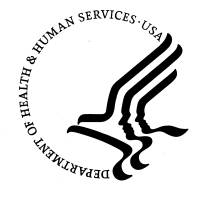Cover Letter
Attachment C-Advance Package NCHS Cover Letter Email.doc
Developmental Studies to Improve the National Health Care Surveys
Cover Letter
OMB: 0920-1030
 DEPARTMENT
OF HEALTH & HUMAN SERVICES Public
Health Service
DEPARTMENT
OF HEALTH & HUMAN SERVICES Public
Health Service
Centers for Disease Control and Prevention

National Center for Health Statistics
3311 Toledo Road
Hyattsville, Maryland 20782
Date
Name of State Representative
Name of Agency
Agency Address
Agency City, State, Zip
Dear <Name of State Representative>,
The CDC’s National Center for Health Statistics (NCHS) is exploring adding in state-regulated assisted living and similar residential care communities in the United States that serve adults with intellectual/developmental disabilities (IDD) to the National Study of Long-Term Care Providers (NSLTCP).
We are asking for your help to identify the licensure categories of residential care facilities (or communities) in your state along with the availability of listings of such licensed facilities that could be used to create a listing of IDD facilities for future NSLTCP surveys. A representative of RTI International will contact you soon to arrange an appointment for a short telephone call. During the scheduled call we will verify your state’s current regulatory categories for residential care facilities that serve adults with IDD and ask for some further details about each licensure category. We expect the discussion to take on average 30 minutes or less. Your participation is voluntary, but will assist greatly in helping further our nation’s understanding of residential care communities for adults with IDD.
For NSLTCP, the definition of a residential care community is one that is regulated by the state to provide room and board with at least two meals a day, provide around-the-clock on-site supervision, and help with activities of daily living (e.g., bathing, eating, or dressing) or health related services, such as medication supervision; serves primarily an adult population; and has at least four licensed, certified, or regulated beds. Facilities licensed to serve a mentally ill population exclusively are excluded. Nursing homes, skilled nursing facilities, and intermediate care facilities are also excluded, unless they have a unit or wing meeting the above definition and residents can be separately enumerated.
Please know that nothing you tell us will be shared. All information collected will be used only for statistical purposes. Strict federal laws protect your information. Questions on the back of this letter describe these laws and who may see your personal information. If you have any questions about confidentiality, call NCHS’ Confidentiality Officer Eve Powell-Griner at (888) 642-1459.
Thank you in advance for your help with this important endeavor.
Sincerely,
Charles J. Rothwell, MS , MBA
Acting Director, National Center for Health Statistics
If you would like to learn more about this study, please visit http://www.cdc.gov/nchs/nsltcp.htm.
(Back of letter)
Frequently Asked Questions
WHO WILL SEE MY ANSWERS?
We take your privacy very seriously. The answers you give us are used for statistical research only. This means that your answers will be combined with other people’s answers in a way that protects everyone’s identity. As required by federal law, only those NCHS employees, and our specially designated agents (such as RTI International), who must use your personal information for a specific reason can see your answers. Anyone else is allowed to use your data only after all information that could identify you and/or your agency has been removed.
Strict laws prevent us from releasing information that could identify you or your agency to anyone else without your consent. A number of federal laws require that all information we collect be held in strict confidence: Section 308(d) of the Public Health Service Act (42 United States Code 242m), the Confidential Information Protection and Statistical Efficiency Act (CIPSEA, Title 5 of Public Law 107-347), and the Privacy Act of 1974, 5 U.S.C. § 552a. Every NCHS employee, contractor, and agent has taken an oath to keep your information private. Any NCHS employee, agent or contractor who willfully discloses ANY identifiable information could get a jail term of up to five years, a fine of up to $250,000, or both. In addition, NCHS complies with the Federal Cybersecurity Enhancement Act of 2015. This law requires the federal government to protect federal computer networks by using computer security programs to identify cybersecurity risks like hacking, internet attacks, and other security weaknesses.
WHAT DO MY ANSWERS HAVE TO DO WITH CYBERSECURITY?
The purpose of the Federal Cybersecurity Enhancement Act of 2015 is NOT to read your personal information. The act allows software programs to scan information that is sent, stored on, or processed by government networks in order to protect the networks from hacking, denial of service attacks, and other security threats. If any information is suspicious, it may be reviewed for specific threats by computer network experts working for the government (or contractors or agents who have governmental authority to do so). Only information directly related to government network security is monitored. The Act requires any personal information that identifies you, your agency, or your answers to questions to be removed from suspicious files before they are shared.
| File Type | application/msword |
| File Title | Attachment F: Advance Package Call Document, Advance Letter, Advance Frequently Asked Questions, Associations’ Letter of Suppor |
| Author | Christine Caffrey |
| Last Modified By | Buie, Verita (CDC/OPHSS/NCHS) |
| File Modified | 2016-11-11 |
| File Created | 2016-11-11 |
© 2026 OMB.report | Privacy Policy